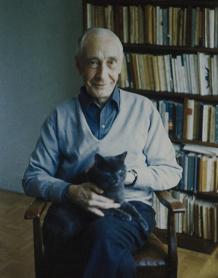Paul Evdokimov, theologian

Il est né Paul Nivolaevitch Evdokimov le 2 aout 1901 à Saint-Pétersbourg, dans une famille de l’aristocratie russe. Son père, officier, est assassiné en 1907. Paul Evdokimov est à l’École des Cadets puis entame des études de théologie lorsque, en 1918, il est mobilisé dans l’une des armées blanches créées cette année-là pour combattre les bolcheviques. Il combat près de deux ans. Lors de la débâcle, Paul Evodkimov s’exile à Constantinople puis, en septembre 1923, à Paris.
Tout en menant à bien une licence de théologie puis une thèse de philosophie sur Dostoïevski et le problème du mal, Paul Evodkimov devient le premier secrétaire de l’Action chrétienne des étudiants russes en France. Après le déclenchement de la Seconde guerre mondiale, il s’engage dans la Résistance avec ses amis protestants de la Comité inter-mouvements pour l’accueil des évacués (Cimade), dont il devient un animateur.
En 1945, après le décès de son épouse, Paul Evdokimov décide de se consacrer aux réfugiés, auprès de la Cimade. Il dirige à Bièvre la Maison d’accueil de l’association puis, jusqu’en 1968, le Foyer d’étudiants de Sèvres, qui s’installera ensuite à Massy. Il refuse une invitation à enseigner à la Faculté de lettres de Bordeaux car cela l’obligerait à demander la nationalité française et qu’il veut rester réfugié russe.
Membre du Conseil œcuménique des Eglises, il devient professeur à l’Institut St Serge où il enseigne l’histoire du christianisme occidental et la théologie morale. Il a écrit de nombreux livres, dont Les âges de la vie spirituelle en 1964, et L’art de l’icône, Théologie de la beauté, terminé en 1967 mais publié seulement en 1970
Paul Evdokimov est décédé le 16 septembre 1970.